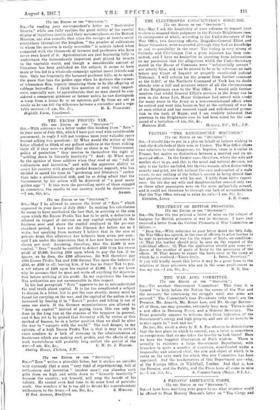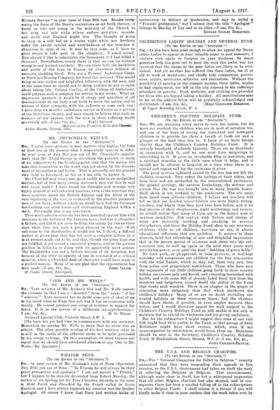A PARSONS' AMBULANCE CORPS. (To ens Emma or rac "
tirocrtroa."] Sta,—I have been watching your paper to see what response would be offered to D030 Hensley Benson's letter on "Thu Clergy and
Military Service S' in your issue of June 30th last. Besides recog-
• iring the force of the Dean's contentions as set forth therein, it hurts us who are young in the ministry of the Church to feel snug and safe while others endure privation, wounds, and death that England might .live. The thought of going to sleep in a soft bed on a winter night while our brethren suffer the untold equator and wretchedness of the trenches is obnozioue to come of us. It may be that some, as I, have no great desire to take part in the 'slaughter. I asked myself. How should I like to administer the Saerament if I had killed a German? Nevertheless, surely there is that we can do without wrong to our keenest instincts. We cart share both the hardships and perils of the boys in France (or elsewhere) without of necessity shedding blood. Why not a Parsons' Ambulance Corps, or Stretcher-Bearing Company, for front-line service; This would bring us into realest and helpfullest fellowship with the men, and at the same time we should not be doing violence to any scruples about taking life. Colonel Cantley, of the College of Ambulance, could prepare such a company for service in six weeks. What an impressive spectacle it would be if clergy and ministers of all denominations in one body went forth to serve the nation and to witness of their sympathy with the sufferers in some such way! I hove alone six months' ainbulance service in France as a private of the Red Cross Society, and have reason to believe that such an evidenee of our oneness with the men in their suffering would
powerfully am. Sir, de., PERCY JACRSON (Minister of the Primitive Methodist Church). Acton House, Stroud, thou.



























 Previous page
Previous page